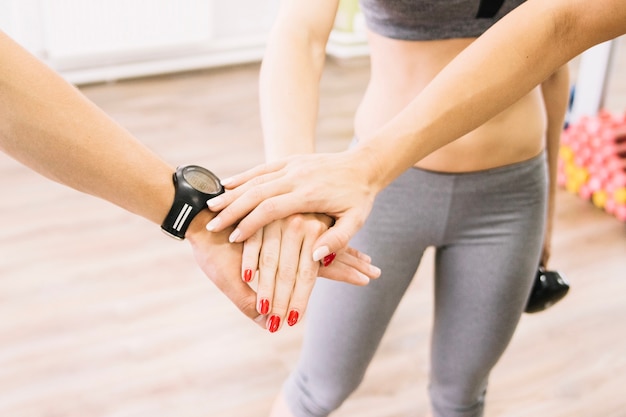
So, you’ve decided to take on the challenge of acing your fitness certification exam? Great choice! Preparing for this test can feel a bit nerve-wracking, but don’t worry. With the right strategies, you’ll be breezing through it like a pro.
In this guide, we’ve put together some handy tips to help you feel confident and ready for your fitness certification exam. Whether you need to master key concepts or improve your test-taking skills, we’ve got you covered. Let’s get you on the path to success!
First things first, make sure you understand the format of your fitness certification exam. Is it multiple choice, essay-based, practical, or a combination of these? Knowing what to expect will help you tailor your study plan. Check the exam guidelines from the certification body, as they often provide details about the structure, time limits, and scoring.
Creating a structured study plan is one of the most effective strategies for exam success. Break down the material into manageable sections and allocate specific study hours for each. Focus more on challenging topics while reviewing familiar ones to maintain proficiency. A well-organized plan will keep you focused and help avoid last-minute cramming.
There are many study materials available, so choose ones that align with your exam syllabus and learning style. Opt for reputable textbooks, online courses, and practice exams from trusted sources. Joining study groups or forums can also be helpful for discussing concepts and clarifying doubts. Remember, quality over quantity when selecting study resources.
Regular practice is crucial, especially for practical components like exercise demonstrations or client assessments. If your exam includes a practical segment, rehearse routines and techniques to ensure seamless execution on exam day. The more you practice, the more confident and competent you’ll become.
Instead of trying to memorize every detail, focus on understanding key concepts and fundamental principles. Fitness certification exams often emphasize core theories, exercise physiology, anatomy, and client assessment techniques. A strong grasp of basics will help you apply them to different scenarios and questions, benefiting your future fitness career as well.
To reduce exam-day anxiety, simulate exam conditions during your study sessions. Find a quiet, distraction-free environment, and time yourself with practice exams or quiz questions. This approach not only familiarizes you with the exam pace but also builds your stamina for sustained focus. Practicing under pressure helps refine your decision-making skills.
Don’t neglect your well-being during exam preparation. A healthy lifestyle benefits your physical and mental health and enhances cognitive function. Eat nutritious meals, exercise regularly, and get enough sleep to keep your mind sharp. Avoid last-minute cramming that leads to burnout and balance your study schedule with breaks and relaxation.
If you’re struggling with challenging topics or feel uncertain about certain concepts, reach out for guidance. Instructors, mentors, or experienced fitness professionals can provide valuable insights and practical tips. They’ve probably gone through the same certification process and can offer personalized advice.
As you progress, review your performance and identify areas that need extra attention. If you struggle with certain chapters or question types, focus your revision and practice on these areas. Addressing weaknesses proactively will build your confidence and competence for the exam.
Keep a positive mindset throughout your exam preparation. Visualize yourself answering exam questions confidently and achieving your certification with pride. Positive affirmations and a can-do attitude can boost your self-assurance. Trust in your abilities and approach the challenge with optimism.
Achieving certification is crucial for a career in fitness, and ISSA is a top choice in the industry. ISSA certification offers flexibility to study at your own pace, online, with the convenience of taking the exam from home. This nationally accredited certificate equips you with the tools and techniques to help your clients achieve their fitness goals.
You’ll gain a deep understanding of muscle principles and how to create effective training programs. The curriculum covers muscle hypertrophy, injury prevention, proper nutrition, sports psychology strategies, and more. If you’re interested in ISSA, you can get started right away!
As you gear up for your fitness certification exam, remember these key tips: study consistently, focus on understanding concepts rather than memorization, use practice exams, ensure you get good rest, and stay confident. Trust your preparation and approach the exam with a calm mind. You’ve got this! Best of luck on your fitness journey!
The easiest fitness certification to get is often the Group Fitness Instructor certification. It involves teaching fitness classes and doesn’t always require as much in-depth knowledge as other certifications, making it a good starting point for newcomers.
The hardest fitness certification is usually the Strength and Conditioning Specialist certification. It demands a deep understanding of exercise science, biomechanics, and programming, making it quite challenging for many.
The Certified Personal Trainer test can be challenging, depending on your preparation and background knowledge. With dedicated study and hands-on experience, it’s manageable. It tests your understanding of anatomy, exercise techniques, and client interactions, making it tough but achievable.